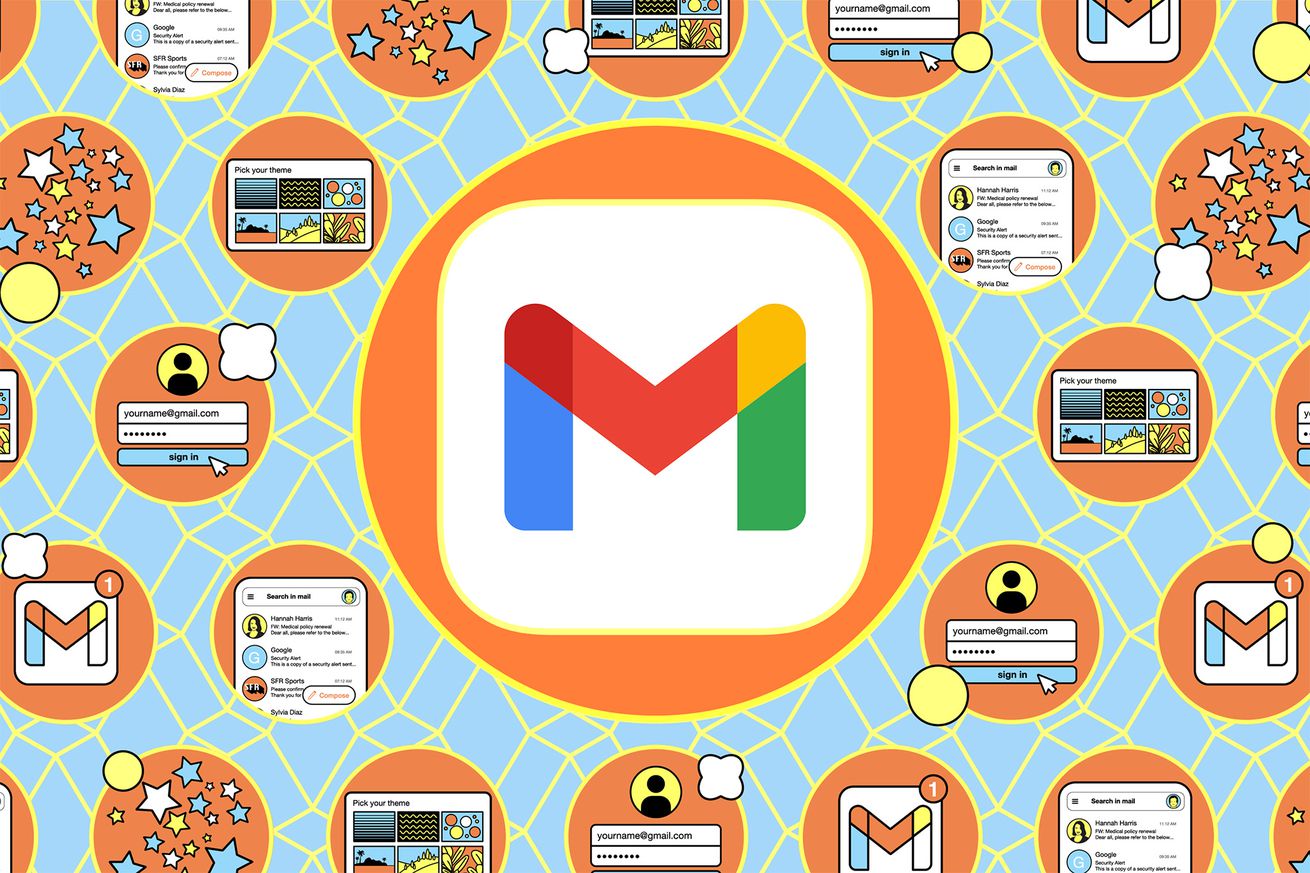Illustration by Samar Haddad / The Verge
Last May, Google announced it was planning to delete any accounts that hadn’t been used in two years (with a few exceptions, such as accounts that have YouTube videos). And sure enough, about two months after that, I got an email from Google warning me that accounts that have not been accessed for two years will indeed be eligible for deletion starting on December 1st, 2023.
I’ve been wandering around Google’s apps for some time now, and it occurred to me that I could have Google accounts I haven’t used for years — and which, if I didn’t check them, might have content I’d want to save. I knew I had three active Google accounts, and suspected I had at least one other I hadn’t visited in a while, but I wasn’t quite sure if there were any others.
If you’re in the same fix I was in, don’t despair. Apparently, there’s at least one way to try to find out whether you have any forgotten accounts floating around: by using Google’s “find your email” page. This looks for any Google accounts that are associated with an email address or phone number that you may have entered as a “recovery” account — one that can be used to prove your identity should you lose the password to another Google account.
Here’s how you do it.
Go to http://accounts.google.com/signin/usernamerecovery and enter any email accounts or phone numbers that you’ve had for a while and which may have been used as recovery info.
The “find your email” page can help you locate any forgotten Google accounts.
On the next page, you’ll be asked for your name.
Next, you’ll be sent a verification code to the phone number or the email account that you entered.
You’ll then be presented with a list of Google accounts for which that phone number or email was registered as a recovery resource.
One of these hasn’t been used in about six years.
And sure enough — I was offered a list of four accounts, three of which were my active accounts but one of which I had completely forgotten about. It was originally created as a test account for a job I had about six or seven years ago and hadn’t been used since.
So what happens if you’re suddenly presented with an old Google account — and you have no idea what the password was? Here’s what happened in my case:
First, I selected the old, forgotten account from the list and was asked to verify that I was human via a CAPTCHA checkbox.
I was then asked for the password — which I didn’t have. Luckily, there was a “forgot password?” link, which I clicked.
I was sent another verification code via the phone number I had originally entered and was then invited to replace my password — which I immediately did.
At this point, I was asked to check the existing recovery email account, which turned out to be my old work email address (which hadn’t existed for some time). I was invited to type in a new recovery account, and a code was sent to that account.
After you’ve changed the password, you might be asked to check your existing recovery information.
It turned out that there was nothing of value in that account, but I was happy to be able to check it just in case before Google wiped it away.
Two more things to note. First, it’s a good idea to use the “find your email” page to check any and all active email addresses or phone numbers you may have used as recovery references. You might also look around any other apps you may have used to reference other Gmail accounts. For example, just for the hell of it, I checked my password manager and found one other Google account that had not been listed with the others because the phone number it was associated with was one I no longer used. Since I still had the password, it wasn’t difficult to then go in and change the recovery phone number so it was current.
Second, this is a good reason not to neglect adding both a recovery phone number and email address to each of your Google accounts. You never know when they might come in handy. You can find instructions on how to do that here.
Update November 29th, 2023, 3:30PM ET: This article was originally published on July 21st, 2023, and has been updated to account for the fact that the deletions will begin on December 1st.
Disclaimer
We strive to uphold the highest ethical standards in all of our reporting and coverage. We StartupNews.fyi want to be transparent with our readers about any potential conflicts of interest that may arise in our work. It’s possible that some of the investors we feature may have connections to other businesses, including competitors or companies we write about. However, we want to assure our readers that this will not have any impact on the integrity or impartiality of our reporting. We are committed to delivering accurate, unbiased news and information to our audience, and we will continue to uphold our ethics and principles in all of our work. Thank you for your trust and support.



![[CITYPNG.COM]White Google Play PlayStore Logo – 1500×1500](https://startupnews.fyi/wp-content/uploads/2025/08/CITYPNG.COMWhite-Google-Play-PlayStore-Logo-1500x1500-1-630x630.png)